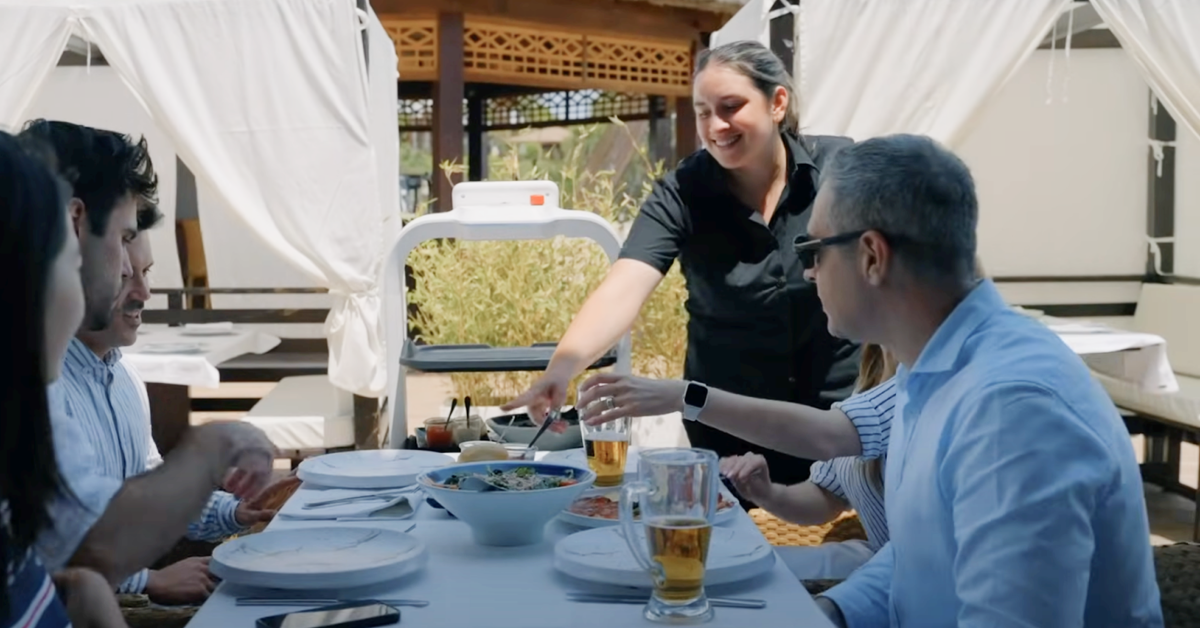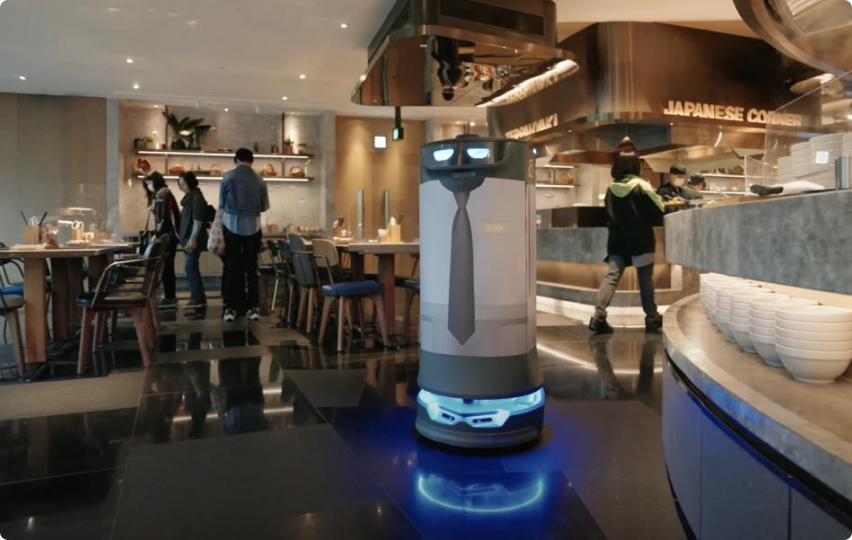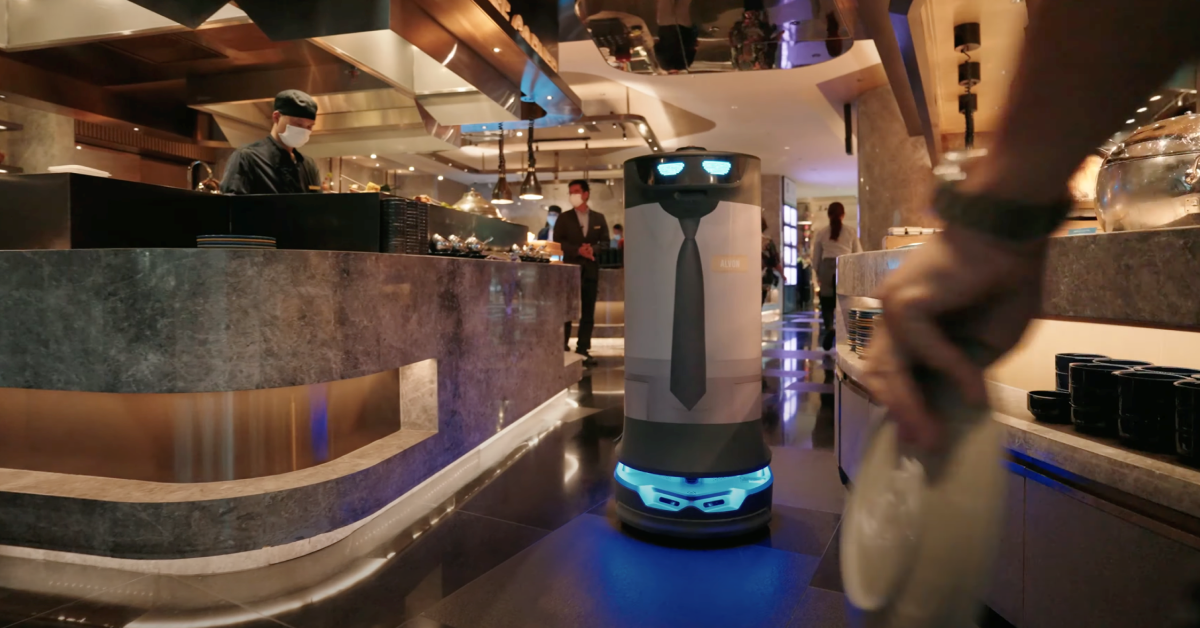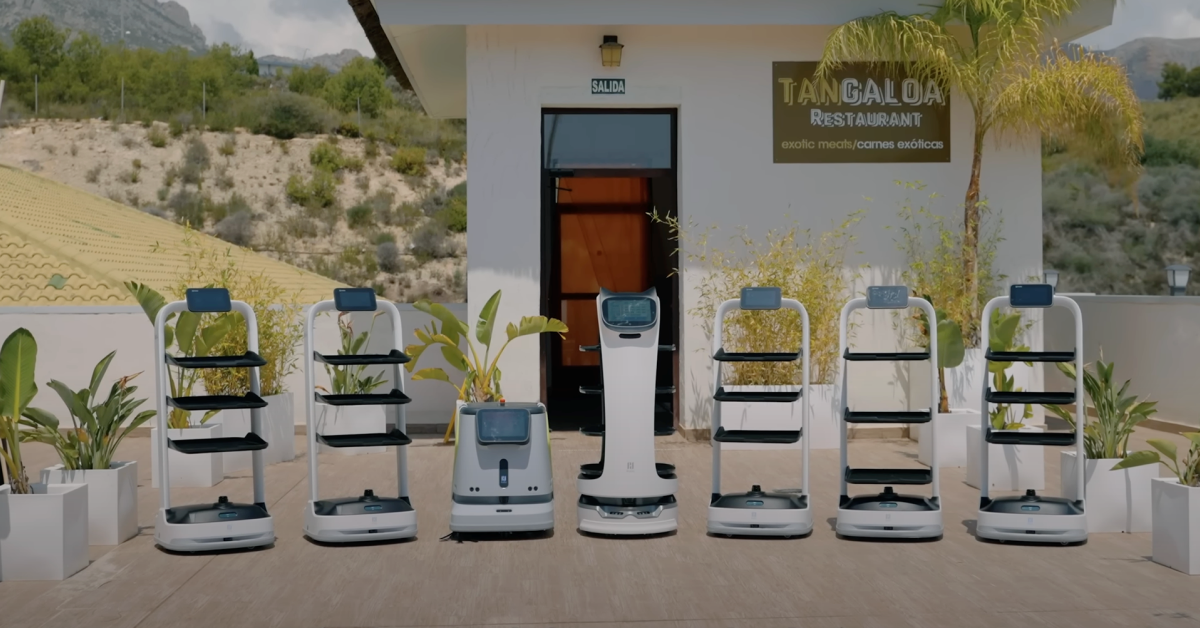
Boosting Hotel Loyalty Programs Through Robotics
In today’s competitive hospitality landscape, hotel loyalty programs are crucial for retaining guests and maximizing Revenue per Available Room (RevPAR).
As the hospitality industry evolves, the adoption of robotics and automation is becoming increasingly common. From a hotel service robot handling housekeeping tasks to AI-driven concierge services, hotels are leveraging these technologies to enhance guest experiences, improve operational efficiency, and stay competitive. However, the decision to implement robotic automation requires a careful analysis of both the costs and benefits.
In today’s day and age, guest preferences are a top priority, and as a hotel, you must find ways to impress your guests.

One of the most significant barriers to adopting robotics in hotels is the upfront investment required. The costs can vary widely depending on the type of robots, their functionalities, and the scale of implementation.
Hardware Costs: Robots with advanced features such as AI, machine learning, and autonomous navigation can be expensive. For instance, a single service robot can cost anywhere from $15,000 to $50,000 or more.
Software and Integration: Beyond the physical robots, hotels must invest in software systems that enable these machines to operate efficiently. This includes AI platforms, IoT connectivity, and integration with existing hotel management systems.
Maintenance and Upgrades: Robots require regular maintenance to ensure optimal performance. Additionally, software updates and hardware upgrades are necessary to keep the robots functioning efficiently over time.

Hotel Henry in Buffalo, New York, invested $200,000 in robotic automation, including cleaning robots and a robotic concierge system.
While the initial costs were substantial, the hotel anticipated long-term savings and efficiency gains.
Despite the high upfront costs, the operational benefits of hotel automation can lead to significant cost savings and revenue growth over time. These benefits often outweigh the initial investment, especially when considering the long-term impact on hotel operations.
Labor Cost Reduction: By automating repetitive tasks such as cleaning, room service delivery, and check-in/check-out processes, hotels can reduce their reliance on manual labor. This not only cuts down on labor costs but also mitigates the challenges of staffing shortages, which have become increasingly common in the industry.
Increased Efficiency: Robots can perform tasks more quickly and consistently than human staff. For example, robotic housekeepers can clean rooms faster, leading to quicker room turnover and higher occupancy rates.
Enhanced Guest Experience: Automation allows for more personalized and efficient service, improving guest satisfaction. Robots can provide 24/7 assistance, ensuring that guests’ needs are met promptly, which can lead to positive reviews and repeat visits.
The Aloft Hotel in Cupertino, California, introduced a robot named Botlr to handle guest deliveries.
Since its introduction, the hotel has reported a 20% reduction in labor costs and a 15% increase in guest satisfaction scores, demonstrating the operational benefits of robotic automation.
The return on investment (ROI) for hotel robotics can vary depending on several factors, including the scale of automation, the type of robots used, and the specific needs of the hotel. However, many hotels report a positive ROI within a few years of implementation.
Increased RevPAR: By improving operational efficiency and guest satisfaction, hotels can command higher room rates and increase occupancy, leading to a higher Revenue per Available Room (RevPAR).
Cost Savings: The reduction in labor costs and improved energy efficiency can result in substantial savings, which can be reinvested in other areas of the hotel, such as guest amenities or marketing initiatives.
Long-Term Sustainability: Robots designed for energy efficiency and sustainability can reduce a hotel’s environmental impact, potentially lowering utility costs and attracting eco-conscious guests.
The Peninsula Hotels chain implemented a range of robotic solutions across its properties, including automated housekeeping and AI-driven guest services.
Within three years, the chain reported a 25% increase in RevPAR and a 30% reduction in operational costs, resulting in a positive ROI.
While the benefits of hotel automation are clear, there are also challenges and considerations that hoteliers must keep in mind when deciding whether to invest in robotics.
Guest Acceptance: Not all guests are comfortable interacting with robots. Hotels must find a balance between automation and personalized human service to ensure that all guests feel welcomed and valued.
Staff Training: Introducing robots into hotel operations requires training staff to work alongside these machines. This includes understanding how to operate and troubleshoot robots, as well as adapting to new workflows.
Technological Reliability: Robots, like any technology, are not immune to malfunctions or technical issues. Hotels must be prepared for potential downtimes and have contingency plans in place.
Hotels integrating robotic housekeepers experience significant workflow enhancements.
For instance, when robots handle regular cleaning duties, human staff can interact more meaningfully with guests, providing tailored service and gathering valuable feedback on their stay.
Additionally, when staff have more time to engage with guests, they can anticipate their needs, ensuring that every request is met promptly and personally.
This proactive approach fosters loyalty and encourages repeat business.
While the benefits of deploying robotics are clear, the high initial investment can be a barrier to implementing robotics across properties.
However, Workwise Robotics offers a Robot-as-a-Service (or RaaS) solution that allows customers to start with low monthly payments on 24-month contracts to not only spread out the cost of the investment, but also include maintenance and service as part of the cost.
This allows companies to gradually roll out their robotics platform with expert support for a significantly lower investment and seamless integration into their workflows.
The decision to invest in hotel automation through robotics involves weighing the costs against the potential benefits. While the initial investment can be substantial, the long-term advantages—such as improved operational efficiency, reduced labor costs, and enhanced guest experiences—often justify the expenditure.
With Workwise Robotics, hoteliers can now carefully consider the specific needs of their property and their guests, ensuring to optimize ROI and that the introduction of robotics complements rather than detracts from the overall hospitality experience.
Learn more about the future of hotel automation and how it can benefit your business.
1.Source: American Hotel and Lodging Association. AHLA Research
2.Source: Hotel Management. Hotel Management Insights

Learn how the best hospitality brands are using Workwise Robotics as their robotics staffing partner
Bussing robot designed with larger storage for dishes and large items.
1 / 5
Interactive food runner designed for ordering and carting items
1 / 5
Alleviates the workload on human staff, allowing them to focus on providing exceptional customer service and attending to guests needs.
1 / 5
Room delivery robot with large and disinfecting storage.
1 / 5
4-in-1 cleaning robot with vacuuming, sweeping, scrubbing, and mopping capability.
1 / 5
Heavy duty cleaning robot designed for large hard to clean large back of the house spaces.
1 / 5
Heavy duty delivery robot for handling large and heavy payloads up to 600kg.
1 / 5
Customer success concierge service robot to assist with customer needs.
1 / 5
1
8

In today’s competitive hospitality landscape, hotel loyalty programs are crucial for retaining guests and maximizing Revenue per Available Room (RevPAR).

This article explores how robotics can improve the workflow of human personnel, allowing staff to focus

Integrating robot cleaners for continuous cleaning, delivery robots for housekeeping services, and bussing robots